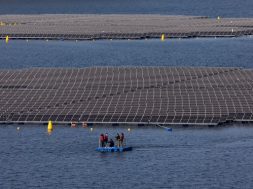
CII, SIAM urge government to hold talks before finalizing EV policy
- CII has called for a three-pronged strategy for industry-wide talks
- According to SIAM, the auto industry’s turnover is close to half of the manufacturing GDP, supports 37 million jobs and contributes 11% of the GST revenues of the country
The Confederation of Indian Industry (CII) and the Society of Indian Automobile Manufacturers (SIAM) have urged the Union government to hold wider consultations with the automotive value chain, including the adjacent industry stakeholders that involve renewable energy — power, battery and minerals among others — before finalizing the goals and deadlines for the adoption of electric vehicles in India.
CII has called for a three-pronged strategy for industry-wide talks that must involve correct goal setting, a technology agnostic approach and consumer affordability.
“Constructive disruptions driven by market forces coupled with enabling policies is the kernel of any innovation and we are hopeful that the same is adopted as India readies itself for the advent of new technologies in mobility, including electric vehicles (EVs). It is important to set the goals right and work towards them as we look at fuel efficiencies and choices for future mobility solutions. The processes of how we get there should be driven by market and industry, to get the best results for the nation,” Vikram Kirloskar. President. CII. said in an official statement.
On the other hand, Rajan Wadhera, president, SIAM cautioned, “The automotive industry fully supports an ambitious aspiration of the Niti Aayog in bringing electric mobility as soon as possible. India is an aspiring nation and keen not only to catch up with the world but to go beyond in the field of EVs. However, the ambition needs to be tempered with a practical approach and what is possible without needlessly disrupting the automotive industry.”
In March 2019, cabinet had approved the Niti Aayog-led National Mission on Transformation Mobility and Battery Storage, which charts the need to create a phased manufacturing programme (PMP) for 5 years (until 2024) to support setting up of large scale battery and cell manufacturing plants in India for EVs. The mission will also jot down a 5-year PMP for localization of EVs and EV components in India.
According to a government document, the steering committee on the same will be comprised of the secretaries from the Ministry of Road Transport and Highways, Ministry of Power, Ministry of New and Renewable Energy, Department of Science and Technology, Department of Heavy Industry, Department for Promotion of Industry and Internal Trade, and Director-General, Bureau of Industrial Standards.
Meanwhile, CII says it too has engaged with the stakeholders from associated industries like renewable electricity and power, battery makers and auto manufacturers to draw up recommendations on its three-pronged strategy for EV adoption in India. It applauds the government for its bold and ambitious targets set in the recent past, such as the goal to set up 175 GW in renewables by 2022.
Urging the government to take a technology-agnostic approach while underlining the challenge of importing raw materials for battery production in India, the CII president said, “It will be constructive to allow multiple technologies as long as they are fuel efficient and meet standards of safety and quality.”
The SIAM president pointed out that while the auto industry has made investment of about ₹70,000-80,000 crore in complying with the BSVI emission norms, the government is proposing to ban the sales of petrol three-wheelers by 2023 and sales of less than 150cc two-wheelers by 2025, according to the media reports citing government sources.
“This seems to be impractical as well as untimely,” said Wadhera.
According to SIAM, the auto industry’s turnover is close to half of the manufacturing GDP, supports 37 million jobs and contributes 11% of the GST revenues of the country.
“What is required is a well laid out roadmap for an ambitious EV rollout over a practical time frame along with an integrated plan for setting up the necessary infrastructure across the length and breadth of the country, in consultation with all stakeholders,” suggested Wadhera.
















